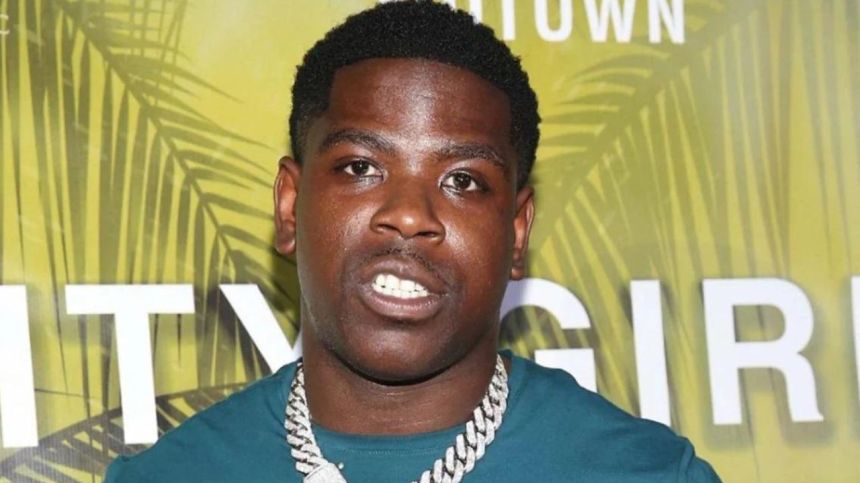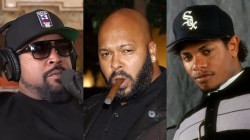Casanova‘s co-defendants in his federal case, Dwight Reid and Christopher Erskine, have been convicted on racketeering and narcotics conspiracy charges.
An announcement by the Justice Department of the Southern District of New York released on Thursday (November 16) confirmed that the two men were the last of 21 defendants convicted in the case. The case involved alleged members and affiliates of the Untouchable Gorilla Stone Nation Bloods Gang, which the Justice Department refers to as “a brutally violent street and prison gang that operates across the country.”
“Dwight Reid and Christopher Erskine are the two highest-ranking members of Gorilla Stone, a ruthless gang, and are responsible for terrible violent acts and trafficking dangerous narcotics across the country and state, including throughout the New York State prison system,” said U.S. Attorney Damian Williams. “They now stand convicted of their crimes and will no longer be able to inflict harm on the people of our District.”
Reid and Erskine were convicted of one count of racketeering conspiracy, which carries a maximum sentence of life in prison, and one count of narcotics conspiracy, which also carries a maximum sentence of life in prison. Both will at least have to serve a mandatory minimum sentence for the latter count (25 years for Reid, 10 for Erskine).
Back in June, Casanova (real name Caswell Senior) disavowed his affiliation with the gang in a plea for leniency from the judge.
In his guilty plea, Casanova admitted to trafficking at least 100 kilograms of marijuana and being a signal caller for the gang. The 36-year-old also copped to his involvement in a 2018 NYC robbery that left a woman named Niya Rucker badly injured, as well as a July 2020 Florida shooting following a gambling dispute.
In an emotional letter to the judge, which was obtained by AllHipHop, Cas renounced his ties to Gorilla Stone Nation and admitted he’s had suicidal thoughts during his time behind bars.
“I am telling you and anyone that will listen that I wanted out before I was arrested, and I am out. I learned through my music career that people will listen and that I don’t need to associate myself with a gang to succeed. I don’t need to associate with a gang even if I don’t succeed,” he wrote.
“While I have been in here I lost my father to cancer. While I put on that strong facade, all I wanted to do was end it. Surviving on Rikers Island and upstate correctional facilities were not easy with racial and gang tension and violence at its height.”
Casanova continued: “I thought I needed to stay in the life in the name because it was a way to promote my career. I don’t care what the government tells you. I am telling you the truth. I was not involved in the daily activities of this gang. I wasn’t anyone’s boss.
“What I was and I regret this was a person that they could use to promote themselves in a world I swear to you I was trying to leave. I clearly did not do a good enough job of this as I did find myself in one bad situation after another.”




![Method Man Admits He Didn't Like Drake's "Wu-Tang Forever": "I [Wasn't] Getting On That"](https://hiphopdx.com/wp-content/uploads/2025/12/method-man-drake-wu-tang-forever-remix.jpg?w=250)





I keep forgetting about all these rappers that kept it real and it went wrong. Yall should stop posting on these fools for click bait. If Nobby Sshamurdered can’t make it after the built hype before his release, why would we think Cassanova is worth talking about? Populate the underground for once in your sorry lives
Yall the reason hiphopsite shut down with your corporate-pocracy. And allhiphop a part of yall. The previous journ a lists are all there, yall post articles after them and this is disgusting. Forcing us to choose coke or Pepsi. But real hip hop heads are onto yall.